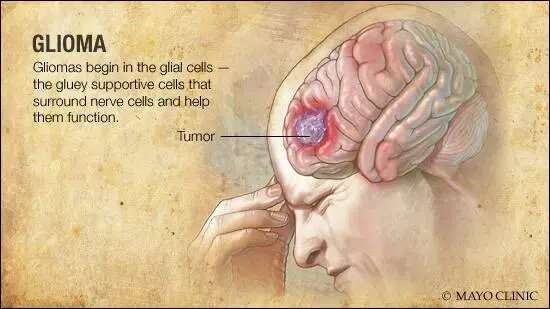Research provides critical information about size and growth speed of gliomas

An important new clue for preventing and treating brain tumors known as gliomas has been identified in research led by the Lunenfeld-Tannenbaum Research Institute (LTRI) at Mount Sinai Hospital in Toronto and Mayo Clinic Comprehensive Cancer Center and Mayo Clinic Center for Individualized Medicine. The study, published in the journal Science, provides a rare window into the biological changes behind glioma development.
Researchers found that animal models who carry a change in DNA known as germline alteration rs55705857 developed gliomas much more frequently—and in half the time—compared to animal models without the alteration. In addition to brain tumors, the findings are relevant to other cancers and diseases.
"While we understand much of the biologic function of germline alterations within genes that code for proteins, we know very little about the biologic function of germline alterations outside of genes that code for proteins. In some way, these germline alterations interact with other mutations in cells to accelerate tumor formation," says co-lead author Robert Jenkins, M.D., Ph.D., a genetics researcher at Mayo Clinic in Rochester.
"Based on this new understanding of its mechanism of action, future research may lead to novel and specific therapies that target the rs55705857 alteration."
The study offers new knowledge that may help clinicians determine, pre-surgery, whether a patient has a glioma.
"We expected that rs55705857 would accelerate low-grade glioma development, but we were surprised by the magnitude of that acceleration," says co-lead author Daniel Schramek, Ph.D., a researcher at Lunenfeld-Tannenbaum Research Institute.
There are many alterations, likely thousands, outside of genes associated with the development of cancer and other diseases, but the mechanism of action is only understood for very few, Dr. Schramek says.
This study demonstrates that, with the tools of modern molecular/cell biology, it is possible to decipher much of the mechanism of action of such alterations.
More information: Connor Yanchus et al, A noncoding single-nucleotide polymorphism at 8q24 drives IDH1 -mutant glioma formation, Science (2022). DOI: 10.1126/science.abj2890

















